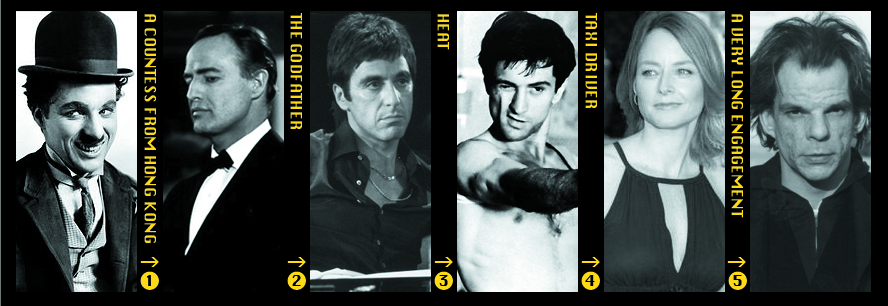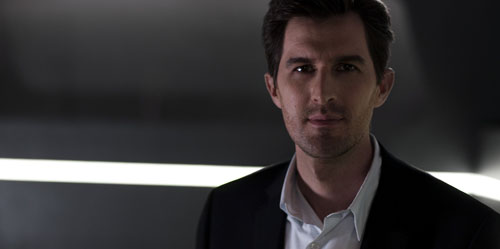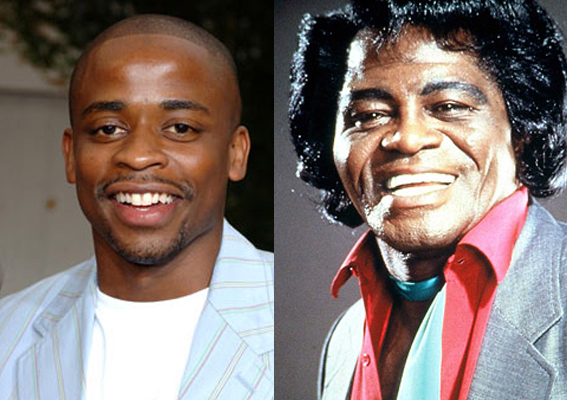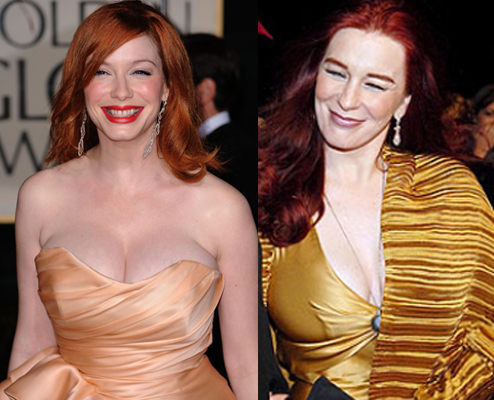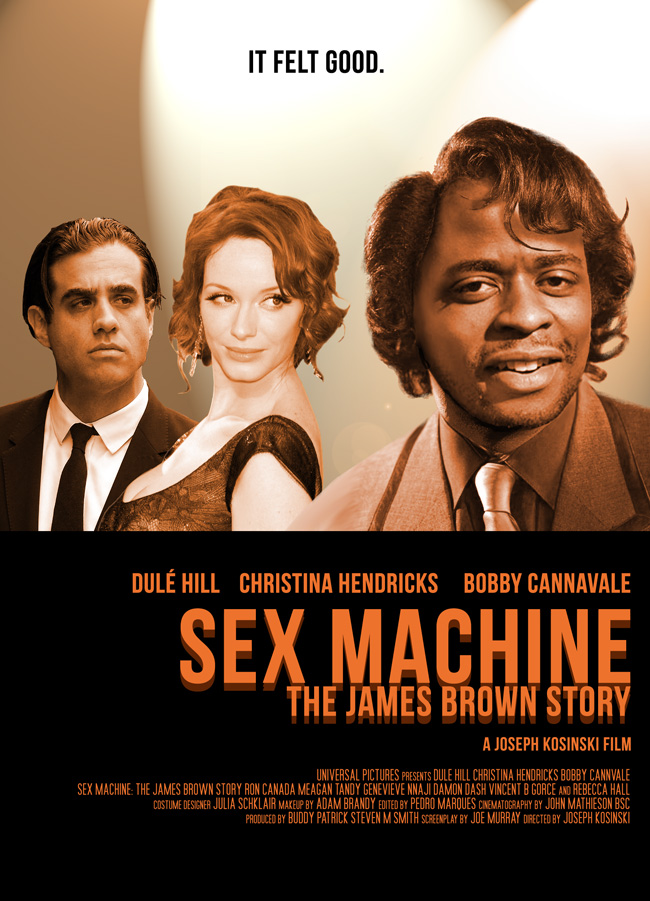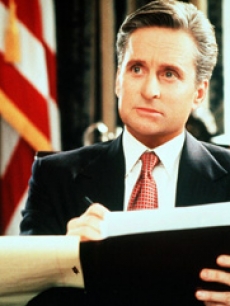 Aaron Sorkin has come under fire in his career for what his detractors claim is a myopic view of American politics. Ever since the intelligent, likeable, sympathetic Andrew Shepherd in The American President faced off against a darkened room of cigar-puffing Republicans – one of whom, upon finding a photograph that could bring down the Presidency, actually begins to sing ‘It’s Beginning To Look a Lot Like Christmas’ – it was pretty clear where his political affiliations lay. Sports Night, The West Wing, Studio 60 on the Sunset Strip and The Newsroom have also not dissuaded us of his liberal sensibilities, and yet each of those shows have all at least featured intelligent, likeable, sympathetic Republicans espousing Republican views in a convincing manner.
Aaron Sorkin has come under fire in his career for what his detractors claim is a myopic view of American politics. Ever since the intelligent, likeable, sympathetic Andrew Shepherd in The American President faced off against a darkened room of cigar-puffing Republicans – one of whom, upon finding a photograph that could bring down the Presidency, actually begins to sing ‘It’s Beginning To Look a Lot Like Christmas’ – it was pretty clear where his political affiliations lay. Sports Night, The West Wing, Studio 60 on the Sunset Strip and The Newsroom have also not dissuaded us of his liberal sensibilities, and yet each of those shows have all at least featured intelligent, likeable, sympathetic Republicans espousing Republican views in a convincing manner.
Sad to say, his latest project has lost all objectivity.
In the United States of America’s 2012 election, Aaron Sorkin has thrown his remaining modicum of bipartisanship out the window. His Democratic characters (Barack Obama, Joe Biden, The Clintons) are eloquent and virtuous, while his Republican characters (Mitt Romney, Paul Ryan, John Boehner) no longer hold bear any resemblance to reality.
Warning bells should have gone off when he introduced the Republican nomination plotline. His list of improbable candidates included the Bible-bashing Rick Santorum, the arch-conservative Michelle Bachman, the drawling gasbag Newt Gringrich, the poorly-disguised George W Bush callback Rick Perry, and, in an effort to appear even-handed, the Democrat-in-Republican-clothing Jon Huntsman.
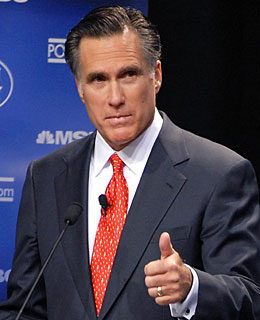 It was a lazy field of candidates, made even lazier when Sorkin eventually went with the most predictable candidate of the lot: square-jawed millionaire Mitt Romney. In order to make Romney comply with Sorkin’s one-dimensional concept of modern Republicans, Romney was ret-conned from a progressive moderate into a mealy-mouthed, pro-life, anti-healthcare spokescliché. Sorkin had altered characters in the past to suit current storylines, but he’d never made any changes approaching this level of absurdity.
It was a lazy field of candidates, made even lazier when Sorkin eventually went with the most predictable candidate of the lot: square-jawed millionaire Mitt Romney. In order to make Romney comply with Sorkin’s one-dimensional concept of modern Republicans, Romney was ret-conned from a progressive moderate into a mealy-mouthed, pro-life, anti-healthcare spokescliché. Sorkin had altered characters in the past to suit current storylines, but he’d never made any changes approaching this level of absurdity.
At the same time, he was clearly struggling with his portrayal of Obama. Clearly attempting to handicap him in some believable manner, Sorkin – rather than having him make a campaign-halting gaff, or reveal some sort of personal demon – simply took a reasonable statement and worded it in such a manner so that an out-of-context sentence could be cherry-picked as an example of his inferred socialism. It was a pretty long bow to draw, and Sorkin’s Republican stereotypes lapped it up, wilfully misinterpreting it so it would become what to them was the defining moment of the campaign. The mere idea that Sorkin would consider something so benign and easily-explainable as a satisfactory portrayal Obama’s biggest stumble reflects an extremely low opinion of the conservative electorate.
 In fairness, his portrayal of the American media holds more focus. Rather than deifying Obama’s achievements – or even recollecting them – the media frequently criticises him for taking too much credit for the death of Osama Bin Laden; he is lambasted for a fairly straightforward healthcare plan that would bring America up to global first world standards; every diplomatic interaction is painted as ‘apologising for America’. Even if none of Sorkin’s politicians are believable, the media and citizens sure are.
In fairness, his portrayal of the American media holds more focus. Rather than deifying Obama’s achievements – or even recollecting them – the media frequently criticises him for taking too much credit for the death of Osama Bin Laden; he is lambasted for a fairly straightforward healthcare plan that would bring America up to global first world standards; every diplomatic interaction is painted as ‘apologising for America’. Even if none of Sorkin’s politicians are believable, the media and citizens sure are.
Look, I’m a long-time fan of Sorkin. I was a stringent defender of the election, and when critics pointed to recurring characters like Sarah Palin as proof that he couldn’t write intelligent female characters, even after established that they’d risen to great political heights, I’d go to pains to point out the similar flaws in endless male characters. I was on the front line, standing up for Sorkin’s writing, and confidently telling anyone who’d listen that he surely had something big up his sleeve.
But then we came to the conventions.
The Republican National Convention was a complete joke, and any Republican watching would surely have taken umbrage at its depiction. There was the parroting of the warped ‘You didn’t build that’ line. There was Romney’s policy-devoid speech. There was the shameful Clint Eastwood parody, in which the filmmaking legend was portrayed as a bumbling old man speaking to an empty chair for fifteen minutes. (In Sorkin’s defence, this came after Clint Eastwood had directed 2010’s Hereafter, so it wasn’t a huge stretch to buy this sudden turn for the senile.)
Even if you could forgive any of that rubbish, the following week he showed us the Democratic National Convention, and in typical Sorkin style, returning character Bill Clinton gave one of those standard electrifying speeches. As with all characters in Sorkin Fantasy Land, the crowd and the country were all roused by an eloquent statesman spouting a barrage of facts and figures. Keep dreaming, Aaron.
 Normally I can let this stuff go, as Sorkin’s sparkling dialogue heals all wounds, but this week he has stepped way over the line. And I’m not even talking about Rick Santorum’s claim that the Republican party will never win over ‘smart people’, allowing liberal subtext to spill into actual text. No, it was his depiction of Mitt Romney that truly slipped into liberal absurdism. In a leaked video, Romney is caught telling his supporters that he’s essentially written off 47% of the country; not just their vote, but their basic value as human beings. He makes no bones about considering them to be entitled, dependent victims. I mean, how do you write a character who accuses the poor of not paying taxes as he himself keeps funds in off-shore accounts and refuses to release more than a single year’s tax returns? How do you that and look at yourself in the mirror? To Sorkin’s credit, he stopped just short of having Romney twirl a moustache as he tied Sandra Fluke to a railway track.
Normally I can let this stuff go, as Sorkin’s sparkling dialogue heals all wounds, but this week he has stepped way over the line. And I’m not even talking about Rick Santorum’s claim that the Republican party will never win over ‘smart people’, allowing liberal subtext to spill into actual text. No, it was his depiction of Mitt Romney that truly slipped into liberal absurdism. In a leaked video, Romney is caught telling his supporters that he’s essentially written off 47% of the country; not just their vote, but their basic value as human beings. He makes no bones about considering them to be entitled, dependent victims. I mean, how do you write a character who accuses the poor of not paying taxes as he himself keeps funds in off-shore accounts and refuses to release more than a single year’s tax returns? How do you that and look at yourself in the mirror? To Sorkin’s credit, he stopped just short of having Romney twirl a moustache as he tied Sandra Fluke to a railway track.
It shouldn’t be hard to write a believable, sympathetic Republican character. In the past, Sorkin has had conservatives such as Ainsley Hayes, Joe Quincy and Cliff Calley (The West Wing), Harriet Hayes (Studio 60 on the Sunset Strip), Will McAvoy (The Newsroom) making complex, multi-faceted arguments on topics such as the economy, healthcare, the role of government, abortion, defence, international relations, states rights, welfare, you name it. These characters sounded intelligent, and you could actually believe that they’d risen to some level of prominence within politics or the media.
His latest crop holds none of this believability. If Mitt Romney is going to continue to be a caricatured, out-of-touch implausible character, then I guarantee the audience is going get fed up with him pretty damn soon.



